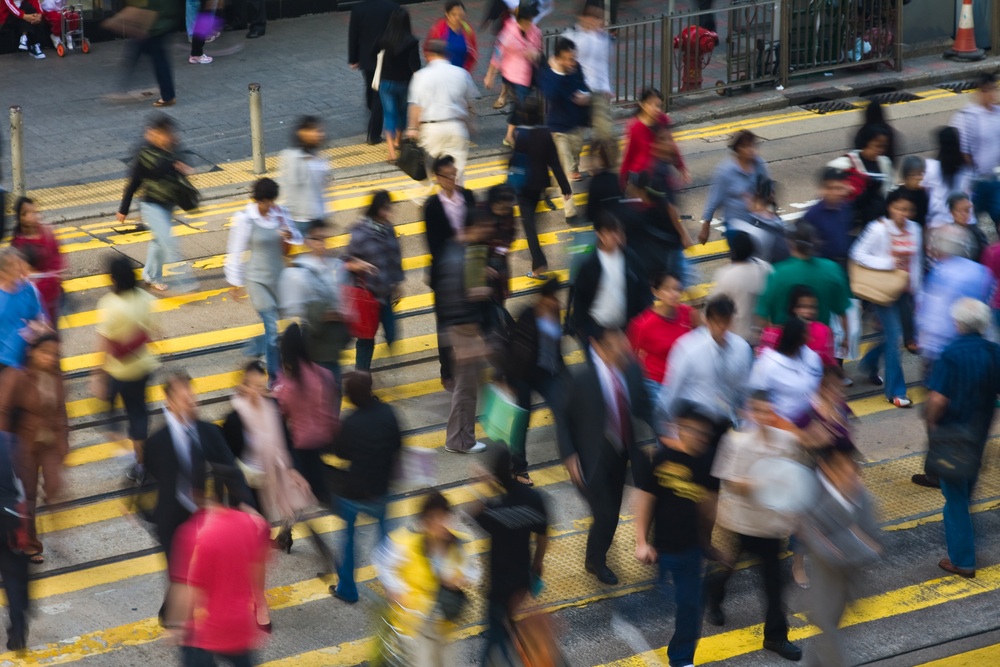Lemurians and the Homeless
“Too often we enjoy the comfort of opinion without the discomfort of thought.” – John Kennedy
Racism is one of many challenges facing all of us now, and not far behind it is homelessness and the mental illness that often is part of this condition. How do Lemurians think about homeless people and relate to them? Two Lemurian Order members tackle this subject.
Encounter at Dunkin Doughnuts
As I sat on a bench outside Dunkin Donuts having my coffee, a very tired looking man plunked down next to me. He carried the characteristic plastic trash bag holding cans and bottles, which told me he was a “canner.” And from the look of him and the heft of his bag I could tell he wasn’t having a very profitable day.
I decided to strike up a conversation with him but he wasn’t in a very talkative mood, except for with himself. I asked him about the impact of the COVID-19 virus shutting down the redemption centers, and hadn’t they just re-opened recently? But very shortly he drifted back to the very active conversation he was having inside his own head. So I sat quietly eating my doughnut, trying not to eavesdrop as he carried on.
I felt an urge to do something for this man, perhaps offer him a doughnut or give him some money, but something told me to think carefully before acting. He was not asking anything of me, and though giving him money or buying him a meal might make me feel very good, I realized it could be perceived by him as offensive. My well-intended desire, driven solely by feeling, could easily do more harm than good.
I had done all I could think of for him, and that was to treat him like a regular guy and not wall him off as the vagrant one feels uncomfortable around and so often tries to avoid. I resisted the urge to do what would make me feel good about myself, and just wished him a good day.

“Willie”
Each weekday morning I arrived at Penn Station in New York City with hundreds of other commuters. The homeless seemed ubiquitous, and every day for weeks one of them stood in the middle of the Penn Station concourse during the morning rush hour. Unshaven and slightly stooped as he leaned on his walker, the man I’ll call Willie wore shoulder length white hair, his stained clothes old and baggy. He stood fast in the face of the oncoming horde of commuters, yelling unintelligibly, causing them to divide on either side of him.
Each morning I hurried past Willie with indifference. I walled him off emotionally, assuming he had psychological challenges and was no more than a noisy object. Still, his presence troubled me. When I finally set aside my well-reasoned rationalization and was willing to be honest with myself, I realized the reason for my negative reaction was my fear of Willie.
As a Lemurian student, I was learning why I should try to treat all people with kindness, patience and tolerance. This is easy with family, friends, and others I get along with. The challenge for me is to extend this loving respect to people I don’t like, who rub me the wrong way or who I want to avoid. But the idea slowly crept into my mind that Willie, just like me, was a human being with problems. Gradually I began to study him. No longer was he just an object on the concourse. I could see him as a person with a hard life. Though I knew I should be careful approaching a stranger, I felt Willie was not a danger and one day, finally, I decided to greet him.
Next morning Willie was at his usual spot, yelling loudly. Gathering my courage I cut across the path of the commuters, came face to face with him and introduced myself. He stopped yelling. As people streamed around us, he told me of his life on the streets, how hard it was but how it was safer than living in the city’s shelters. He talked about being robbed and that he worried it would happen again. We spoke of his injured leg and the medical care he was receiving. When I asked why he yelled at us each morning, Willie said he was just trying to catch our attention. Since he wasn’t panhandling, maybe he just wanted to be noticed.
We talked until it was time for me to go. When I walked away, Willie was no longer the wildly yelling homeless man. He was a human being with feelings, fears, and problems. Just like me.
I still think of Willie and wonder if he remembers me.
Copyright © 2020 Lemurian Fellowship
7 thoughts on “Lemurians and the Homeless”
Comments are closed.

Thank you for this inspiring story. I understand why you were initially afraid. I worked for 3 years in downtown Los Angeles. Homeless people often yelled, projected anger at anyone even walking their way. It used to be disconcerting to me too, especially when they were unkempt until finally, I realized this was a defense mechanism that helped them survive on the street. After, I’d just remain calm, let it slide, and they’d calm down when they realized I was no threat. The reaction was universal regardless of the person’s appearance. It’s certain you’re one person Willie will never forget.
Thanks for the post, and thanks to those sharing experiences and thoughts on this important and challenging topic. I suspect with the current pandemic, there is an uptick in the number of people who are homeless through loss of employment. Although applying the Golden Rule is essential in our interactions with all, seems especially important with folks in such situations.
Good examples of Lemurians being Lemurians! I agree with Phil T. on this topic. If you are having problems with people who have made unfortunate choices in life then there is room to improve in your life as well. There is no reason to look down on anyone’s chosen path in life and in the end, all lives matter.
There are a couple of things that draw my attention when reading this. Firstly, why are we so frightened of them? Perhaps because of their unpredictability, and because we fear their differences to us. Perhaps they make us feel guilty in some way.
And secondly – because of the first – it takes much courage and a sincere interest in another to take the time and opportunity to talk to a homeless person. As expressed by these accounts, love and compassionate understanding is a help to practise. I feel I don’t need to be a hero, but just to pay them human respect.
A number of years ago, when my daughter was around 13, we use to walk in a nature reserve nearby. Adjacent to this, a young homeless guy in his early twenties, had made his home. We use to talk with him at times. My daughter proved quite unafraid, and concerned for the person. The experience may well have helped her decide on her future direction, for now she expresses compassion within her employment in the care/disability services.
A few years ago, I encountered a young man outside of a gas station where we were getting gas for the car, in my home town of Gary, Indiana. He asked for money, and instead of the regular yea or nay, then shrug him off, I began to talk with him. I was a fairly new student, but well into my Lemurian studies, and trying to be more compassionate and understanding. I asked what was wrong, and why was he begging. He said that he had lost his job, and that his girlfriend put him out, and he was now homeless. Then he began to cry. I wondered if anyone had shown any concern for this young man, and we talked a little longer. I gave him a few bucks and told him of a men’s shelter I knew of which was safe, and I told him where he could find help for a substance abuse problem, if he needed that kind of help. I shook hands with him and he smiled, and I left.
I’ve always loved reading the “Willie” story. But I think the impact on me is less about Willie than about the courage and depth of human kindness it reflects in the one telling the story. I am not smart enough to know what we should do about the “homeless” problem in our world. But I do know what it teaches about the need for each of us to solve our own problems to grow spiritually. This blog makes it clear that I need to solve my own problem of treating all humans with respect, and perhaps this will make it easier for homeless people to work with their challenges.
I have no doubt that Willie remembers you, the one person out of how many thousands that actually took the time to treat him like a human being. A Very rare thing sad to say. I had a very similar situation with a man in the streets of New Orleans many years ago who tried to lift my wallet when I stopped to ask him directions. Long story short, a great human connection was made that day there on Canal Street and I still think of him with fondness and respect. I suspect that I cross his mind from time to time as well.